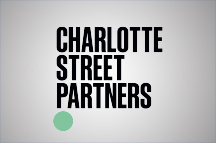With less than a week to go until the final Programme for Government before the 2026 Scottish Parliament election, ministers and civil servants will be scrambling for bold, attention-grabbing ideas to tackle the deep-rooted challenges facing Scotland’s communities, economy and public services.
Anyone familiar with the process knows the drill: a strong appetite for policies that are cost neutral, headline friendly, and promise quick wins.
Most would agree that this approach could do with a rethink, given the government’s performance against key metrics in recent years.
For too long, the programme for government has been a moment of political theatre. Next week presents a critical opportunity for the SNP to show it is serious about improving the lives of ordinary Scots.
John Swinney’s arrival as first minister has already changed the tone of government. His inner circle speaks of a cultural reset – fewer priorities, sharper focus, and a renewed emphasis on delivery over spin. There’s a clear desire to move away from governing by press release. But progress has been incremental, and time is short.
New figures this week laid bare the urgency of the task ahead. Some 80,000 children in Scotland are living in “very deep poverty”, according to The Joseph Rowntree Foundation. That statistic alone should sharpen the government’s focus.
The profound inequality which persists in Scottish society is the thread running through so many of the challenges we face.
It fuels the generational ill-health that is crippling the health service. It drags down the performance of our schools. If left unresolved, it will prevent young Scots from developing the knowledge and skills they need to grasp the economic opportunities of the energy transition.
Achieving sustained economic growth in a country where nearly one-in-four children lives in poverty is a near impossible task. Wealth is generated by people, businesses and communities, but systemic inequality is preventing them from realising their potential. That’s why the first minister’s pledge to prioritise child poverty is not just morally right but economically essential.
With families and businesses facing tough times, the first minister must use his speech to parliament on Tuesday to convince the electorate that he has a plan to put money in people’s pockets.
There are a number of levers at his disposal.
Social security has a role to play. The Scottish Child Payment, for example, is making life that little bit easier for thousands of parents.
However, we also need to see a cross-portfolio focus on economic growth and job creation. Scotland is being held back by policy uncertainty and a planning process which often seems hell-bent on deterring investment. It needs reform – and better resourcing – if we are to create the homes, infrastructure and economic opportunities our communities so desperately need.
Next week, Swinney needs to rattle a few cages. Which is something that doesn’t come naturally to him. There is a small, but powerful, cohort in Scotland who are quite content for our economy and public services to perform just slightly better than England’s, in a selection of key areas, but nowhere near enough to drive real transformation. The first minister must leave them in no doubt that he aspires to higher ambitions.
Scottish Labour leader Anas Sarwar’s clearest route to power in 2026 lies in exploiting the complacency of incumbency. To counter it, the first minister must use this moment to paint a credible, compelling vision of a better Scotland – and show he has the determination to deliver it.












